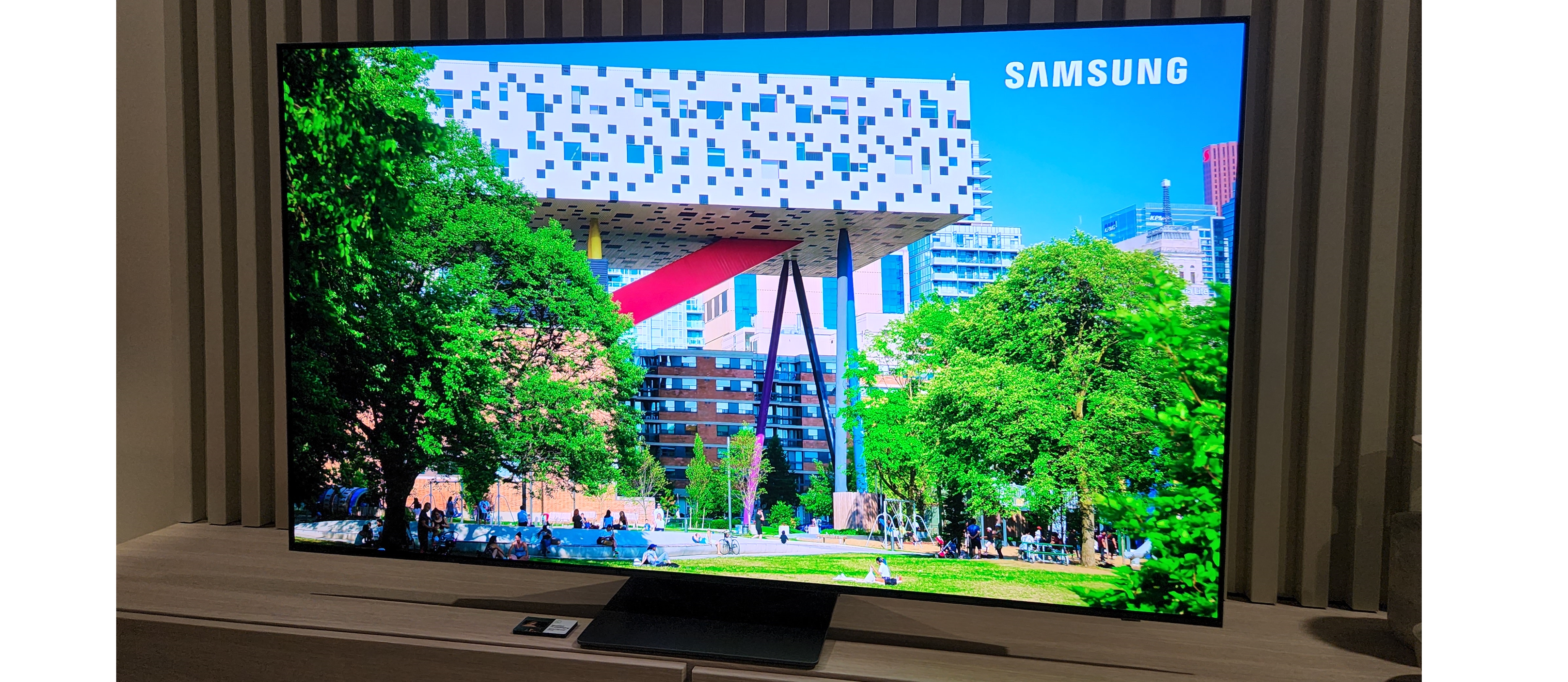Samsung stops making LCD screens, which is good news for cheaper QD-OLED TVs
But don't worry, Samsung's QLED TVs won't change

Samsung Display is finally making its long-expected move to stop producing LCD screens, switching at least some of its LCD factories to produce new QD-OLED screens, according to a new report from a South Korean business newspaper (via Digitimes),
However, the crucial bit of information is this change won't really affect Samsung Electronics' TV business, despite the fact that almost every TV it makes is LCD – with the exception of the QD-OLED Samsung S95B.
That's because Samsung Display (which makes just screens) and Samsung Electronics (which makes finished products with screens in that you can buy) are effectively run as separate businesses, even though they're part of the same company.
Samsung Display will sell its screens to whoever wants them, while Samsung Electronics will buy its screens from whoever will sell what it needs for the right price. This means that Samsung Electronics has bought LCD TV panels from other makers for years, and it will just keep doing that – Samsung Display's decision doesn't mean that the company can't make LCD TVs anymore.
Digitimes notes that this has been in the plan for a while: Samsung Display was originally supposed to stop making LCD TV panels in 2020, but the pandemic caused a big increase in demand for TVs, so it delayed the change. But with LCD prices continuing to fall, it looks like Samsung Display's decided to switch to more premium fare.
Digitimes says that Samsung Display is planning to convert at least some of its LCD production factories to making QD-OLED screens, which is great news for people hoping that next-gen tech will become cheaper.
Analysis: QD-OLED needs all the help it can get to become cheaper
QD-OLED TVs are currently very expensive: there are only two – the Samsung S95B mentioned above, and the Sony A95K – and they're priced at the top-end of 4K TVs from both companies. If QD-OLED is ever going to sell in big numbers, it'll need to come closer to mid-range pricing – or, at least, closer to the price of regular OLED TVs.
Sign up for breaking news, reviews, opinion, top tech deals, and more.
If Samsung Display is pushing more of its factories to make QD-OLED TVs, that's great news for bargain hunters, as prices for those sets could finally start falling. Simple economies of scale mean that the more you make of something, the lower you can price it because you can produce them cheaper per unit.
Samsung Display is also said to be working on improving the efficiency of making QD-OLED panels (again, reducing their cost), and we reported on a new pixel technology that could also help bring down costs.
Why is it so important that the cost of QD-OLED comes down fast? Well, it's because regular OLED TV screens keep dropping in price, and we might be about to see an OLED price war as a new company enters the market.
The early buzz on QD-OLED TVs is they're better than regular OLED, but maybe not so much better that most people won't be happy to pay 30%-40% less for a regular OLED equivalent. And if regular OLED is about to get even more affordable, QD-OLED needs to keep pace, and then we'll see it in more models.
For now, though, rest assured that the best Samsung TVs will still feature the LCD QLED screens they're so famous for.

Matt is TechRadar's Managing Editor for Entertainment, meaning he's in charge of persuading our team of writers and reviewers to watch the latest TV shows and movies on gorgeous TVs and listen to fantastic speakers and headphones. It's a tough task, as you can imagine. Matt has over a decade of experience in tech publishing, and previously ran the TV & audio coverage for our colleagues at T3.com, and before that he edited T3 magazine. During his career, he's also contributed to places as varied as Creative Bloq, PC Gamer, PetsRadar, MacLife, and Edge. TV and movie nerdism is his speciality, and he goes to the cinema three times a week. He's always happy to explain the virtues of Dolby Vision over a drink, but he might need to use props, like he's explaining the offside rule.